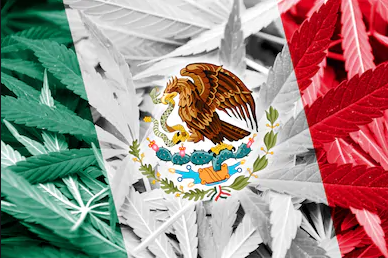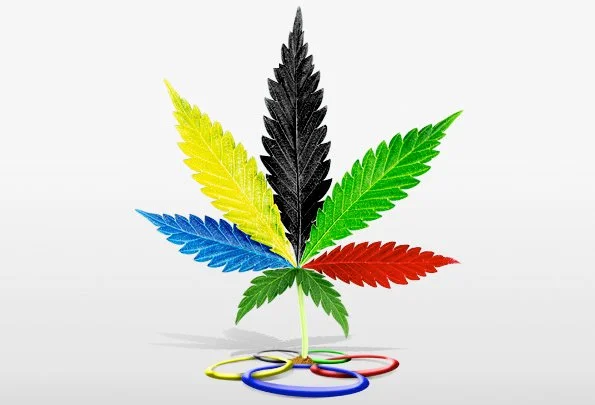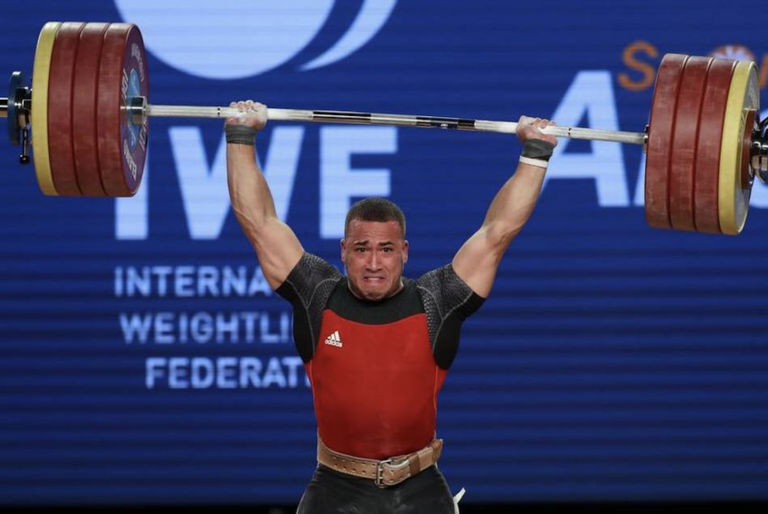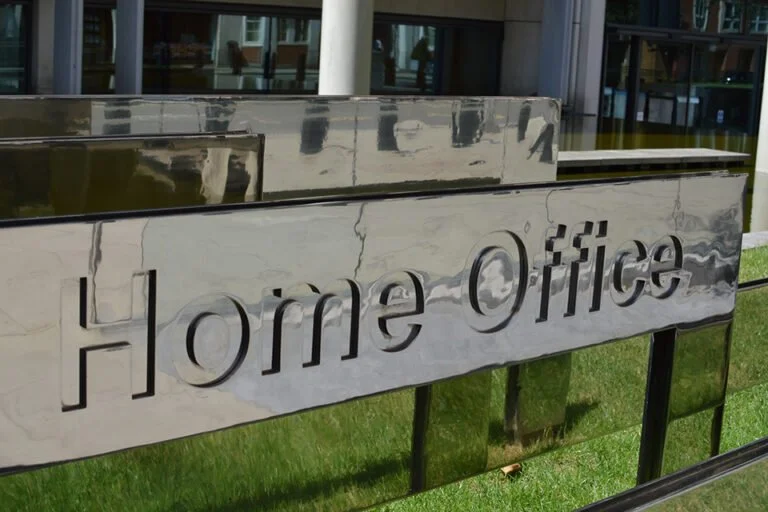Last Week In Weed Issue 29
Published July 5th 2021
In this week’s issue of Last Week in Weed, we’ll be looking at the Mexican Supreme Court ‘decriminalising’ cannabis, The US Sprinter Sha’Carri Richardson being banned from the Olympics after testing positive for THC, and finally, the UK Home Office granting a research license for the cultivation of high-THC cannabis in Lincolnshire.
Mexican Supreme court ‘decriminalises’ low-level cannabis possession
The first story that we’ll cover this week is one that we have looked at a few times now in this blog series – The fight to end cannabis prohibition in Mexico. Last week saw the latest development in the Central American nation’s battle to once and for all end the unwinnable war on weed.
In an 8-3 decision, the Mexican Supreme court ruled last Monday that several sections of the country’s general health law that prohibit the personal consumption and home cultivation of cannabis are unconstitutional.
The new decision means that adults wanting to cultivate their own cannabis plants can now apply for a permit from the Health Secretariat to ‘legally’ possess up to an oz (28g) of cannabis. Until now individuals had to petition the court for an injunction to consume and grow cannabis without being criminalised.
The Mexican Supreme court first granted an injunction to four citizens back in 2015, creating the mechanism for others to do the same. Several cases later and the court ruled in 2017 that the government must draft legislation to ‘legalise’ adult consumption and cultivation of cannabis in Mexico.
The Mexican Congress has since asked for several extensions to the court-mandated deadline. Twice sighting that there are ‘technical aspects of the bill which require more time’ and most recently blaming the global Covid-19 pandemic for delaying progress.
The courts decision comes after a proposed bill to ‘legalise’ possession of up to an oz (28g) and cultivate up to 8 plants stalled in the countries Senate. This ruling ultimately still criminalises personal possession over 5 grams, any form of sales, and personal cultivation without a license. You know all of the things required to consume cannabis without potentially supporting the perpetuation of other criminality.
So in a lot of ways, this is exactly what the congress and the government have been hoping for, an easy way for them to obfuscate their responsibilities and obligation to enact a new law ‘legalising’ cannabis in Mexico.
I worry that this will placate enough of the grassroots movement in Mexico and lead to a reduction in the pressure being placed upon the state. I now fear that the masses will be appeased by this ruling to such a degree that the current Mexican government will be able to simply shelve any further reform with little to no objection from its citizens.
US Sprinter banned from Olympics after THC found during drug test
100 metre US gold medal hopeful Sha’Carri Richardson was suspended from competing in the late-run 2020 Tokyo Olympics in Japan later this month. The 21-year-old track and field sprinter was suspended last week after failing a drug test following her win at the US qualifying trails.
The National Collegiate Athletic Association (NCAA) Champion tested positive for THC after she won the US trials last month. After completing a mandatory counseling program Sha’Carri accepted a one-month suspension that disqualifies her from competing at this year’s Olympic Games in Tokyo, Japan.
Image: The Guardian
Sha’Carri Richardson suspended after testing positive for THC
“The rules are clear, but this is heartbreaking on many levels. Hopefully, her acceptance of responsibility and apology will be an important example to us all that we can successfully overcome our regrettable decisions, despite the costly consequences of this one to her.”- USADA CEO Travis Tygart
It is such a shame for this athlete as in April 2021 Sha’Carri Richardson became the world’s sixth-fastest woman and the fourth fastest in US history. Speaking after her suspension Sha’Carri said that she had started smoking cannabis after a reporter had publicly informed her of her biological mother’s death a week before the qualifying trials began in Oregon last month.
The Texan sprinter said that “hearing such intensely personal news from a complete stranger was definitely triggering and shocking” and that it sent her into a “state of emotional panic”. The red-headed runner later Twitted that “Don’t judge me, because I am human.”
There is another case closely linked to this one that has emerged recently. A Chilean weightlifter has also just been suspended after failing a drug test for THC. Arley Mendez sprang to prominence in 2017 with a surprise victory in the former 85kg category at the International Weightlifting Federation World Championships.
The South American athlete has launched an appeal to WADA because the drug was consumed ‘recreationally’ and not to enhance sporting performance. If successful the 27-year-old would be eligible to compete in the Olympics this year.
Image: Panama Sport
Chilean weightlifter Arley Mendez suspended after testing positive for THC
This is a rather interesting situation when you look at the contradiction in messaging here. The United States Anti-Doping Agency (ASADA) along with the World Anti-Doping Agency (WADA) classifies cannabis as a ‘performance-enhancing drug’ yet the US government and International bodies classify cannabis as a ‘drug of abuse’. How can it be both?
WADA will prohibit a drug if it meets two of the following criteria;
– The substance is considered a performance enhancer
– The substance potentially pose a health risk to athletes
– Its use violates the ‘spirit of sport’
We know cannabis isn’t a health risk so the other two criteria used to ban THC are that it is a performance enhancer and that its consumption violates the ‘spirit of sport’ set out by WADA. They define the ‘Spirit of Sport’ as “the celebration of the human spirit, body, and mind,” adding that it reflects the values of sports, such as character, teamwork, and “fun and joy.”
How they can say that cannabis isn’t an aid to “the celebration of the human spirit, body and mind” is beyond me. So with recent rule changes allowing CBD and ‘medically prescribed’ cannabis to be consumed by athletes, it is just a matter of time before we see THC and cannabis in general removed from sporting banned substances lists across the globe.
UK Home Offices grants THC research license
Our final story this week concerns the UK Home Office issuing a high-THC Cannabis cultivation research license. The announcement was made last week that the London Stock Exchange-traded cannabis investment firm, Ananda Developments had secured a license from the Home Office to cultivate cannabis in the UK for research purposes.
DJT Plants, a subsidiary of Ananda Developments will cultivate 13 cultivars for use on large-scale in-house research into the efficacy of cannabis for the conditions that are currently being privately prescribed here in the UK.
The team will pop a selection of seeds from the 13 high-THC, high-CBD, and one for one cultivars and keep 5 of each for ‘pheno hunting’ making a total of 65 sub-cultivars for research.
“All the material that we currently have in the UK is imported, and quality and consistency seems to be variable. “I think there’s a huge opportunity to provide a UK source of medicinal cannabis for both UK and international patients.
“Our aim is to have our own unique strains that will be suitable for the indications that are being treated in the UK, and will be plants or chemovars that thrive in UK conditions. Stabilising these 65 strains is about getting the genetics to the point where plant after plant after plant, you’re getting exactly the same cannabinoid profile.
“We’re also very focused on terpenes which is fairly cutting-edge in terms of where medicinal cannabis is at the moment. “While the research is thinking about terpenes, there isn’t much focus on the terpenes when it comes to the flower that is being offered.”
Growing sustainably DJT Plants will use the UK’s natural growing season, during which the facility will benefit from long hours of light and its greenhouses will create the right temperature to avoid having to rely on artificial light and heat. Its material will then be sent to Israel for cannabinoid and terpene analysis.
“When you grow under artificial conditions of light and heat, the power that is consumed is astronomical, so whilst we talk about this natural product, we’re ignoring the fact that actually it can be really damaging”
“Patients and prescribing doctors will know they’re getting a UK product, which hasn’t traveled very far, meaning it’s probably going to be fresher, hasn’t chewed up power or transportation costs coming from the other side of the world and it will be consistent and of a high-quality.” – Ananda Developments CEO, Melissa Sturgess
The company has previously worked with GW Pharmaceuticals on sustainable cultivation techniques. If the company secures further licenses they intend to move to commercial cultivation, domestic sales, and exportation to mainland Europe.
DJT Plants are expected to break ground on their new £300,000 purpose-built Lincolnshire facility later this month. The new facility will include two greenhouses, a breeding area, a laboratory, and a clean room to handle and package mature flowers. The site will be kept secret and secured and monitored by private security.
This seems like a thinly veiled attempt for Ananda to best position itself ahead of what very much feels like an impending policy change in the UK. The Labour Drug Policy Reform Group and the Conservative Drug Policy Reform Group are both currently pushing heavily for corporate-first drug policy reform here in the UK. So it is looking ever more likely that there will be some form of movement on this subject either this year or early into 2022.
Written By Simpa For The Simpa Life





